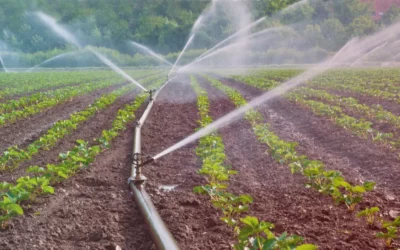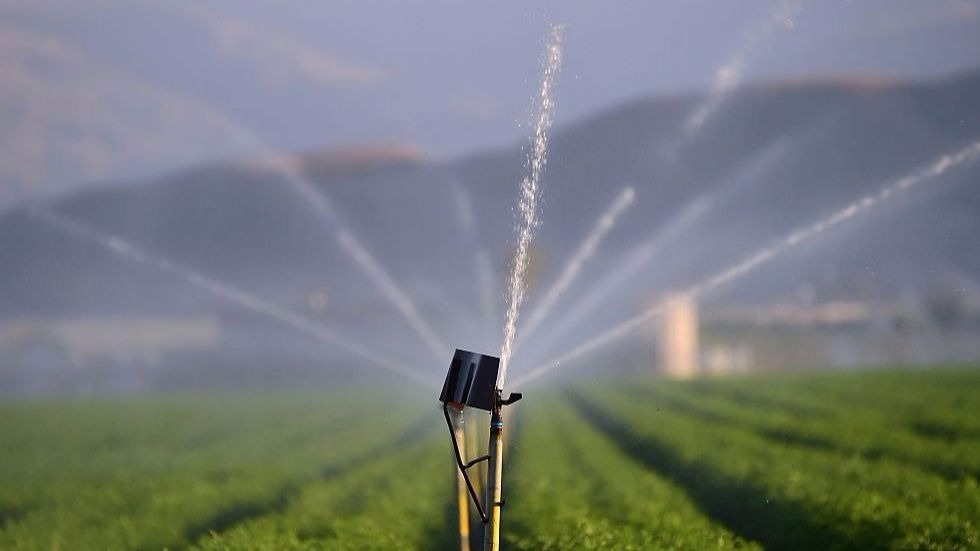
Organic farming irrigation is a crucial aspect of sustainable agriculture that focuses on optimizing water use while minimizing environmental impact. Effective organic farming irrigation practices are essential for maintaining healthy crops, conserving water resources, and ensuring the overall sustainability of farming operations. Unlike conventional irrigation methods that may rely on synthetic chemicals or excessive water use, organic farming irrigation emphasizes natural techniques and resource efficiency to support both crop health and environmental stewardship.

One of the fundamental principles of organic farming irrigation is the use of water-efficient technologies. Drip irrigation, for example, is a highly effective method for delivering water directly to the root zones of plants. This technique reduces water wastage by minimizing evaporation and runoff, ensuring that each plant receives the precise amount of moisture it needs. Drip irrigation systems are particularly well-suited for organic farming because they allow for the controlled application of water without relying on chemical additives. By using drip irrigation, organic farmers can achieve higher water use efficiency and reduce the impact on surrounding ecosystems.
Another important aspect of organic farming irrigation is the implementation of rainwater harvesting systems. Collecting and storing rainwater for irrigation purposes helps reduce dependence on external water sources and lowers overall water costs. Rainwater harvesting can be achieved through the use of rain barrels, cisterns, or larger storage tanks, which capture and store rainwater runoff from roofs or other surfaces. This harvested water can then be used to irrigate crops during dry periods, providing a sustainable and cost-effective alternative to conventional water sources. Additionally, rainwater is typically free of the chemicals found in municipal water supplies, making it an ideal choice for organic farming.
Soil management also plays a critical role in organic farming irrigation. Healthy soil with good structure and organic matter content has a higher water-holding capacity, which can reduce the need for frequent irrigation. Practices such as composting, mulching, and cover cropping improve soil health and enhance its ability to retain moisture. Mulching, for instance, involves covering the soil surface with organic materials like straw or wood chips. This layer helps prevent evaporation, reduces soil temperature fluctuations, and suppresses weed growth, all of which contribute to more efficient water use. By focusing on soil health, organic farmers can create a more resilient and water-efficient growing environment.
The timing and frequency of irrigation are also important considerations in organic farming irrigation. Proper scheduling based on weather conditions, soil moisture levels, and crop needs can help optimize water use and prevent over-irrigation. Using soil moisture sensors or simple methods like feel-and-measure techniques can guide irrigation decisions, ensuring that water is applied only when necessary. Over-irrigation not only wastes water but can also lead to problems such as root rot and nutrient leaching. By monitoring soil moisture and adjusting irrigation practices accordingly, organic farmers can maintain healthy crops while conserving water resources.
Integrating organic farming irrigation practices with other sustainable farming techniques can further enhance water use efficiency. For example, combining drip irrigation with precision agriculture technologies, such as remote sensing and data analytics, can provide valuable insights into crop water requirements and optimize irrigation schedules. Similarly, using green infrastructure practices like swales or rain gardens can help manage stormwater runoff and recharge groundwater supplies. These integrated approaches contribute to a holistic strategy for water management that supports both crop health and environmental sustainability.
Education and continuous improvement are key components of successful organic farming irrigation. Farmers should stay informed about the latest developments in irrigation technologies and best practices, and be open to experimenting with new methods. Participating in workshops, seeking advice from experts, and sharing experiences with other organic farmers can provide valuable knowledge and support. Additionally, evaluating the performance of irrigation systems and making necessary adjustments can help optimize water use and improve overall efficiency.
In summary, organic farming irrigation is a multifaceted practice that involves using efficient technologies, managing soil health, and optimizing water use to support sustainable agriculture. Techniques such as drip irrigation, rainwater harvesting, and soil conservation practices play a vital role in maintaining crop health and minimizing environmental impact. By focusing on these principles, organic farmers can achieve effective water management, enhance crop productivity, and contribute to the long-term sustainability of their farming operations. As organic farming continues to evolve, ongoing innovation and adaptation in irrigation practices will be essential for meeting the challenges of water scarcity and ensuring a resilient and sustainable agricultural future.









